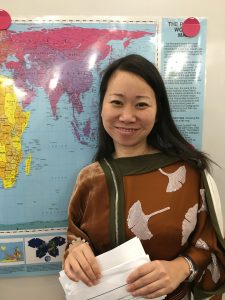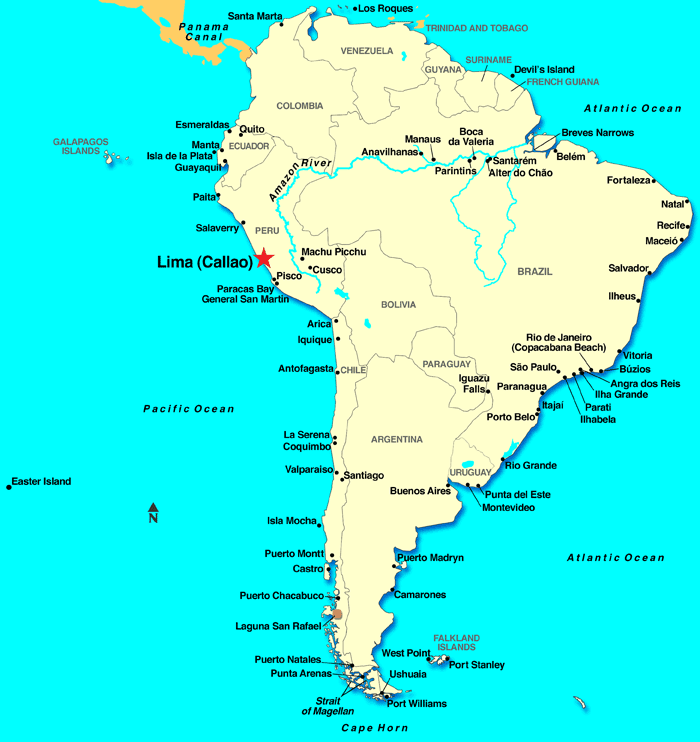
Fourth graders sent thank you notes to Faith Holsaert. Then she wrote back…
Dear Deborah, Dan, Joel, and Tara,
Thank you so much for sharing your students with me. I had a great time visiting and talking with them. The thank you notes were fantastic.
In their notes a number of students asked questions, so I am answering below, in the order that notes came out of the envelope, except I have placed Samuel’s first. Apologies if I have misspelled names.
Samuel: Were you excited to go to LREI?
Faith: Attending the school was the most wonderful thing that happened to me, the best school (including college and graduate school) I ever attended; I learned ideals I’ve kept for my entire life; I’ve made friends who are still my friends when I am 73 years old.
Lorenzo: Why did you quit LREI?
Faith: My family moved me to a public school after sixth grade, for financial reasons. Did you feel that LREI prepared you for your profession and what was your profession? LREI taught me to be inquiring, to value peoples’ words, and to care about justice; all of these prepared me for my work as a teacher, writer, and organizer.
Gia: Did you recite the Pledge of Allegiance?
Faith: No. We also did not sing The Star Spangled Banner at assemblies. We sang America the Beautiful.
Crosby: Did you have a party after you won the case?
Faith: We danced around our classroom with our teacher.
Miles: What made you want to go to LREI?
Faith: I was only 4 years old when I started at LREI, so my parents chose LREI because of its values for me.
Makeda: Do you enjoy telling your stories?
Faith: Yes. And your class was an especially attentive and enjoyable audience for me.
Asher, Milla: What was the hardest thing for you when colored and white were separated under segregation?
Faith: Black people and white people were not legally separated in NYC in the 1940s and 1950s, but there was sometimes tension and hostility between the races. So, do you think this is similar to how things are now?
Ezra: How did you get to school?
Faith: I walked two and a half blocks from Sullivan St.
Jade, Alden, Jasiri, Sophie, Leo, Harlan: Who were your best friends and what are your favorite classes?
Faith: My best friends were Katie and Sarah Anne. My favorite class was fifth grade. I loved art and reading, and also shop.
Kieran: What was your favorite part of the visit?
Faith: Absolutely, my favorite part of the visit was meeting the interesting and interested students of LREI.
Chase: Did you march with Martin Luther King, Jr?
Faith: I never marched with Dr. King, although I went on lots of marches and was arrested twice. I met him in Albany, GA and also during the planning for the 1963 March on Washington.
Imogen: What made you want to be involved in Civil Rights?
Faith: I think becoming an activist was a gradual process which began at LREI, where my teachers and the school were committed to justice and equity, but my commitment was deepened by my love for Charity Bailey. Although we didn’t talk about it during my visit with your class, I also think as a Jewish child in the 1940s and 1950s, I was aware of discrimination against Jews.
Oliver: How was it living in that time for you?
Faith: I was very aware of the effects of McCarthyism upon my community, including the Rosenberg case, but I was also just a kid, going to school, going over to friends’ houses, walking my dog, taking music lessons.
Cecilia: How did the kids react when they found out Charity moved in?
Faith: Charity was a beloved figure, so I think mostly other kids envied me, but I don’t know this for sure. I experienced LREI as a safe space to be, even though I was a child in a biracial family.
Gray: How did you help Black people vote?
Faith: Before you can vote, you must register with your county courthouse, which then gives you a voter registration card. We helped people go down to the courthouse and went into the courthouse with them. In the early 1960s, when Black people tried to register to vote, they were often met with white people who were hostile and violent. Court cases were filed to stop the harassment. I don’t know if you have heard, but this year some states have again made it harder for people of color to register to vote.
Mia, Freya: Did you eat lunch in your classroom or in the cafeteria? and what was school lunch like?
Faith: We ate in the cafeteria. I don’t remember the lunches, except I really disliked the milk in the little cartons.
Lily: Was it really cool to meet Martin Luther King, Jr at the time? Did anything bad happen when you fought for equal rights?
Faith: At the time, Dr. King wasn’t quite as famous as he became later, but it was exciting to meet someone I’d seen on television and heard a lot about. In Southwest Georgia, many of us were arrested for marching and some people in The Movement were beaten; some houses were shot into. At that time, hundreds of demonstrating children in Birmingham AL, in the next state over, were attacked with police dogs and had firehoses turned on them. There are some famous photos of the children in Birmingham.
Luc: Were your parents happy that Charity was living with you?
Faith: Yes.
Beckett: Was it fun having your music teacher live with you?
Faith: How different was school then? It was fun because Charity was a very lively person and she was a Greenwich Village celebrity, so people would stop her to say hello when we were walking down the street. One big difference is that we did not learn how to read at LREI until we were in second grade. We had other subjects, like science, but we didn’t read.
Luca: What were the differences between Charity Bailey and you?
Faith: There were many differences, but here are three: Charity was African American and I was Jewish; Charity was a grown up teacher and I was a child/student; Charity grew up in Providence, RI, and I was growing up in New York City.
Dash: Did you make enemies on the way?
Faith: I made some people very angry when I was registering voters. I don’t know if I’ve exactly made enemies, but there are people with whom I’ve STRONGLY disagreed about justice when it comes to race, gender, and other issues.
Mayer: Were there terrorists in the 1950s?
Faith: People did not use the term “terrorists,” but I believe the white people who carried our lynchings and other racist acts of violence in the 1950s were terrorists, trying to use terror to force Black people to live a certain, inhumane way.













